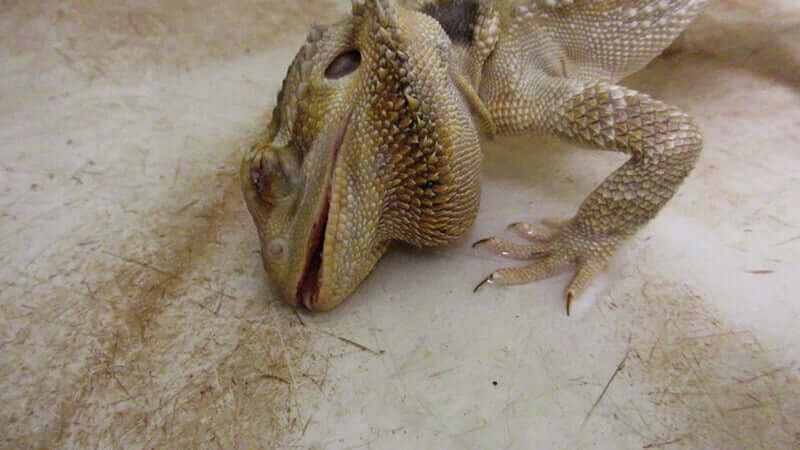2024 Is the Year of the Dragon: Speak Up for Reptiles This Year and Beyond
Starting on February 10, the 2024 lunar new year marks the Year of the Dragon—in Chinese culture, dragons represent good luck, wisdom, and strength.


Fire-breathing dragons may only appear in fantasy stories, but real-life dragon reptiles are just as fascinating as their mythical counterparts. Female Komodo dragons, the largest lizards on Earth, are fiercely protective mothers. Draco lizards, known as “flying dragons,” use their wing-like rib cages to glide through the air, while Chinese water dragons are adept swimmers who can hold their breath underwater for up to 25 minutes. Bearded dragons, named for their beard-like spikes, puff out their “beards” to intimidate predators.

Some dragon reptiles inhabit the lush highland forests of Southeast Asia, where they can climb, forage, and swim, while others are native to the Australian deserts, where they may spend hours basking in the sun or burrowing underground to cool off. Some species live in groups, establishing social hierarchies, whereas others are more solitary.
Dragons Suffer in the Pet Trade
In the pet trade, which remains one of the greatest threats to many reptile species, humans take these sensitive animals from their homes or breed them in captivity. They’re then sold to pet stores and other seedy suppliers, which often cram them into bins, deprive them of water, deny them veterinary care, exploit them as breeding machines, and kill them when they can no longer reproduce.

PETA’s undercover investigations have exposed systemic abuse and neglect in the reptile trade. While investigating Reptiles by Mack—a breeding operation that sold bearded dragons and other animals to pet stores across the country, including PetSmart—PETA’s eyewitness saw bearded dragons languishing in feces-filled tubs and severely dehydrated ones clamoring for water.

One PETA undercover investigation revealed that reptiles—like this bearded dragon—at a breeding facility that supplies pet stores, including PetSmart, were deprived of even their most basic needs, including heat and UV lamps.
Humans often purchase reptiles with little to no knowledge of their proper care and special needs for space, heat, humidity, lighting, and so on, causing them to suffer even more. For example, bearded dragons—the most common reptiles purchased as “pets”—are cold-blooded animals who rely on external heat sources to raise their body temperature. In captivity, UV lamps or other artificial forms of heat, which can be difficult to regulate, must be used.
Most reptiles purchased as “pets” suffer and die from inadequate care. An estimated 75% of them don’t even survive a year.
Usher in the Year of the Dragon by Helping Reptiles
Reptiles aren’t objects to buy and sell—they’re living, feeling beings who don’t want to be exploited. You can speak up for bearded dragons and other animals who are suffering and dying in the pet trade—tell PetSmart and Petco that you plan to buy supplies only from businesses that don’t sell animals, such as Target, Walgreens, or online retailers. You can also help reptiles by speaking out against the exotic-skins industry, which cruelly slaughters snakes, lizards, and alligators to make bags and belts.
